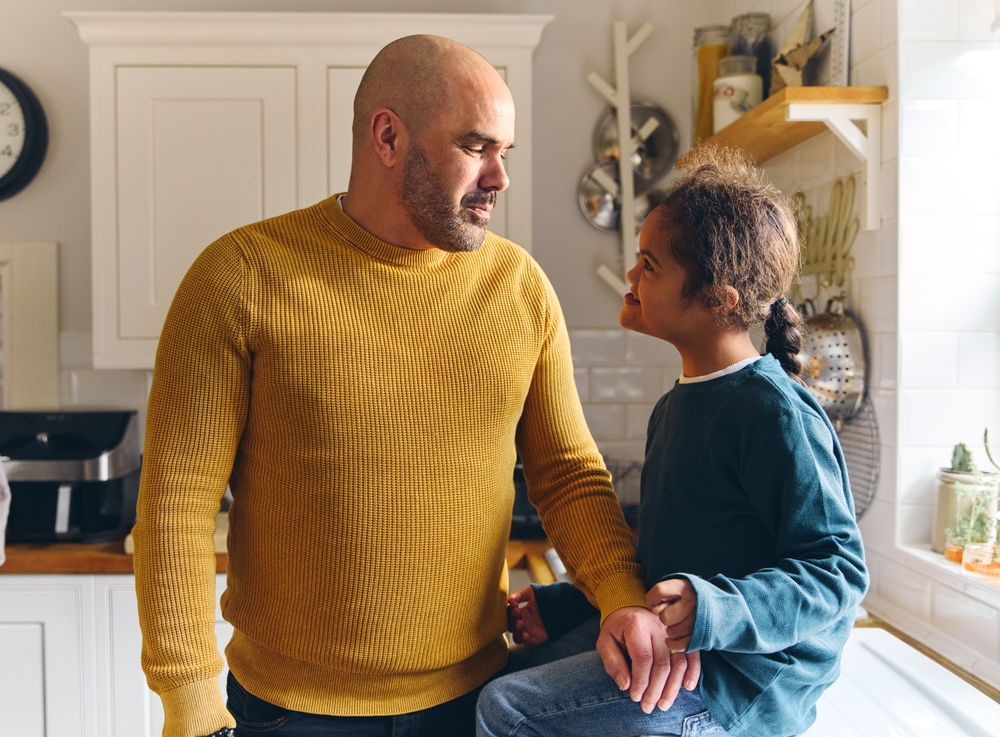
This Black History Month, we’re exploring the importance of recognising and supporting children’s cultural identity. Let’s learn more about how foster parents can create an inclusive environment and celebrate their foster child’s heritage.
What is cultural identity?
Each person has their own cultural identity, which is made up of a range of things including language, ethnicity, religion, traditions, attitudes and beliefs. We may also see culture reflected in factors such as the way a person dresses, which foods they tend to eat and the music they listen to.
Culture forms a part our identity and influences the way we interact with the world. Stereotypes and attitudes towards our culture can influence how the world interacts with us.
Cultural awareness in foster care
Cultural awareness is ensuring that we appreciate each person’s unique culture and identity, respecting our differences, celebrating diversity and fighting against prejudice. In foster care, we often try to match children with families who share their cultural identity in order to help children to maintain or develop a strong sense of belonging and self.
Sometimes a child will be matched with a family who have a different background to their own. This is known as a cross-cultural placement. With the right training from our team and a willingness to learn, foster parents from any background can help to provide children with the in-depth understanding of their identity which they need to thrive.
Learning about cultural identity as a foster parent
If you’re caring for a child from a different cultural background to your own, one of the best things you can do is to educate yourself about your young person’s culture and how their life experiences may differ to your own.
This may involve educating yourself on the cultural expectations your young person has been raised with and the prejudices they may face from the outside world. Prejudice can look very different for different groups of people; for example, the prejudices faced by a child from a Traveller family will be very different to those experienced by a child with black heritage.
Prejudice doesn’t always come in the form of outwardly aggressive racism. It can also appear in more subtle forms, such as unconscious bias and micro-aggressions. At the bottom of this page, we’ve included a list of charities and resources to help you deepen your knowledge on the topic of cultural awareness.
5 ways you can support your foster child’s cultural identity

- Create an inclusive environment
You can create an inclusive home environment for your foster child in many different ways. It might involve providing chopsticks for your young person instead of western cutlery, switching to kosher or halal meat, or learning how to properly wrap a hijab. You could also learn some unfamiliar recipes which will be home comforts to your foster child, or incorporate their cultural traditions into your family celebrations. If the child in your care chooses to follow religious practices, you should be sure to encourage them to embrace their faith and support their religious routines.
Filling your home with a diverse range of books and media can be another great way of ensuring that children see their cultural identity reflected in the world around them, and learn to appreciate difference and diversity in others. Show active interest in your young person’s culture and engage in it each day together as a family— for example, by watching a movie in their first language with subtitles, or by listening to a radio station which plays music from their culture while on the way to school.
- Learn your young person’s unique needs
It’s hugely important to cater to your young person’s unique needs, and to take the time to understand them deeply. This goes for all areas of their life, including a child’s personal care needs, which can differ between children of different faiths and ethnicities.
Let’s take the example of caring for black hair. Curly and coily hair types are unique, requiring a lot more care and attention to prevent dryness and breakage. Making the effort to learn protective haircare styles invest in the correct products for your young person’s curl type and learn about the cultural significance of black hair will be incredibly worthwhile to their sense of identity and happiness.
You may also find it beneficial to seek out a black barber or hairdresser in your area— just be sure to seek permission from your Social Worker before changing your young person’s hairstyle or stylist. Learn more about caring for curly and coily hair or watch this incredibly enlightening video by adoptive mum Christy Gior on caring for her daughter’s beautiful hair.
- Get to know your local community
Another amazing way to ensure that you’re building an inclusive environment which supports your young person’s cultural expression is by engaging with your local community. This can be through one-off events, such as dance performances and events like Black History Month celebrations, or through your everyday activities.
For example, while out and about you may choose to visit areas where your young person’s culture is very visible, such as your local Chinatown, or shop at stores which cater to particular communities such as your local Polish shop, where your young person can bring home some familiar treats. You could also volunteer in your local area, join clubs, and support your young person to attend their place of worship if they are religious.
Meeting local people who share your young person’s cultural background is a great way to find new role models and new friends. You could make an extra effort to help your young person to find community with people who share their background by making an extra effort to invite children who share their culture to parties and on playdates, as well as getting to know their caregivers.
- Support family time
As a foster parent, part of your role may be to promote healthy family time during which the child in your care is both physically and emotionally safe. If the child in your care keeps in contact with their birth family, this can provide fantastic opportunities to strengthen their sense of identity and belonging. Some families may require an interpreter to be present during sessions to ensure everyone is safe and understood. You can help to ensure that family time is beneficial to your young person by talking about their feelings with them and encouraging them to connect with their loved ones.
Spending time with family members can be hugely beneficial for some children in care, though each child’s circumstances will differ. Each child will have a personalised plan for family time, which should be regularly reviewed with your social worker to ensure that the child is receiving the best possible benefits during visits with their birth family.
- Utilize your support network
As a foster parent with Clifford House, you’re never alone. If you ever feel out of depth on a subject, reach out to your support network for help and guidance. This could mean reaching out to friends, family, your child’s teachers or social workers, or members of your local community who may have experience which could be invaluable. Everyone in a child’s social circle should be committed to creating an inclusive environment where their cultural identity is embraced.
We also encourage you to utilise support from our team, whether this be calling us for guidance over the phone or taking advantage of our brilliant training opportunities. All of our foster parents receive high quality training on the principles of equality, equity, diversity and inclusion. We also provide a range of training via our online learning platform on a variety of subjects, including:
- Cultural awareness
- Adultification of BAME and care-experienced children
- Caring for a child of a different ethnicity, race or religion
When you foster with us, we’ll also introduce you to other foster parents at activity days, support groups, and through our experienced foster parent buddy scheme.
We’ve built a community of foster parents who are always there for one another. Never be afraid of asking questions or reaching out to us for support when you need it. The Clifford House family will always be there to support you and your foster child, whenever you need us.
Close out
If you’re ready to begin your fostering journey, get in touch with us today and our team of fostering advisors will do all that they can to answer your questions and support you on your journey. Fill in our online enquiry form or call us today on 0800 369 8515.
Further reading and resources:
- Show Racism the Red Card
- Race and Mental Health resources from Mind UK
- Medway African & Caribbean Association
- What are Micro-aggressions?
- ‘The Importance of Racial Identity Work for Parents’ by Dr. Gina Miranda Samuels
- ‘The Realities of Raising a Kid of a Different Race’ by Karen Valby
- ‘Supporting a Child’s Cultural Heritage’ guide by Family Action UK
